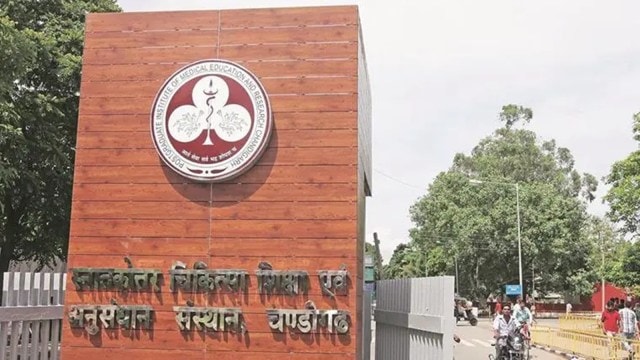PGI Chandigarh to start tele-OPD pilot for follow-up patients, why this could be a gamechanger
PGI's initiative helps patients consult doctors remotely from home through the eSanjeevani app, reducing long wait times and congestion.
 The department of telemedicine at PGI is preparing to launch a pilot project for tele-OPD follow-up services, with the Ministry of Health also emphasising the expansion of teleservices and tele-OPD follow-ups for some time. (Express File)
The department of telemedicine at PGI is preparing to launch a pilot project for tele-OPD follow-up services, with the Ministry of Health also emphasising the expansion of teleservices and tele-OPD follow-ups for some time. (Express File) At the outpatient department (OPD) of the Postgraduate Institute of Medical Education and Research (PGIMER), Chandigarh, patients need to go through multiple long queues and hours of waiting, from registration to finally reaching the doctor’s room before their turn for consultation.
Whether it is a new patient registering for the first time or a follow-up patient, everyone has to go through the same waiting process. On average, the PGI OPD sees about 10,000 patients daily; more than half of these are follow-up patients. Considering the increasing numbers from across the region, PGI is planning a new initiative for follow-up patients, under which they can consult doctors from their homes instead of physically coming to the hospital.
 The department of telemedicine at PGI is preparing to launch a pilot project for tele-OPD follow-up services, with the Ministry of Health also emphasising the expansion of teleservices and tele-OPD follow-ups for some time.
The department of telemedicine at PGI is preparing to launch a pilot project for tele-OPD follow-up services, with the Ministry of Health also emphasising the expansion of teleservices and tele-OPD follow-ups for some time.
Head of the deparment (HOD), Prof Biman Saikia, said they recently celebrated its 20th Foundation Day. During the event, departments such as endocrinology, gynaecology, nephrology, and the pain clinic, among others, showed keen interest in telemedicine services. A meeting was held to discuss how this facility could be brought onto a tele platform, and the department is working towards starting this service initially with a few departments as a pilot project to present the results to the health ministry, after which it could be expanded to other departments.
When patients visit the PGI OPD or any clinic and are advised to follow up, they will be informed about the option of a tele-follow-up. They will need to download the eSanjeevani app on their phone, and a specific day and time for the follow-up consultation will be provided. By visiting the website, patients can consult their doctor through the tele-follow-up service. The department aims to ensure that the same doctor who initially treated the patient handles their follow-up consultation as well, and the plan is to start this pilot project within the next six months.
In departments like endocrinology and hepatology, OPD often runs late into the evening due to the heavy patient load. For instance, the gastroenterology OPD sees around 300 patients daily, out of which about 200 are follow-up cases.
This initiative could also ease the increasing campus traffic and parking problems. “In the gynaecology department, 80 per cent of women face postpartum issues after childbirth, and bringing a child for hospital visits can be difficult, and many women hesitate to discuss their problems,” says Prof Saikia, adding that teleconsultations could be a huge relief for such women.
Dr Saikia pointed out that in many cases, doctors simply need to renew prescriptions, a process that takes barely three minutes, but patients often have to spend one or two days travelling from remote areas or wait for hours at a stretch.
“Shifting these patients online could significantly reduce patient burden at the OPD, and with fewer patients, managing campus traffic will also become easier. Telemedicine can save patients not only time and travel expenses but also free up doctors’ time, and it is the future of medicine.”
However, running telemedicine services is like operating an entirely separate hospital, requiring dedicated manpower and staff, and for now, the existing staff will have to handle this service along with their routine duties.
PGI’s telemedicine department has been operational since 2005, but services were scaled up after Covid. The department currently covers all regions of Haryana and offers extensive telemedicine services. According to data, telemedicine saves patients from travelling 400-450 kilometres from remote areas of Haryana.
Currently, the department provides doctor-to-doctor services, allowing doctors at health and wellness centres in Haryana to consult PGI specialists for patient treatment. In the proposed tele-follow-up system, patients will be able to consult their doctors directly online.







